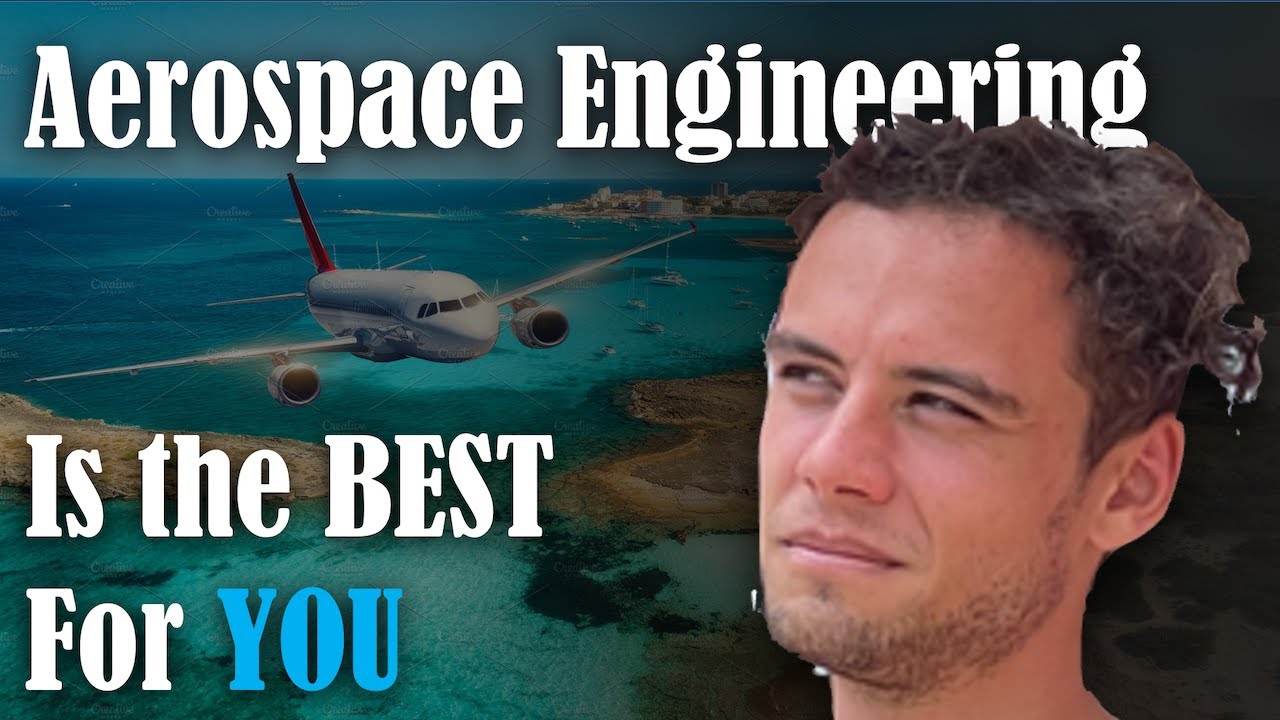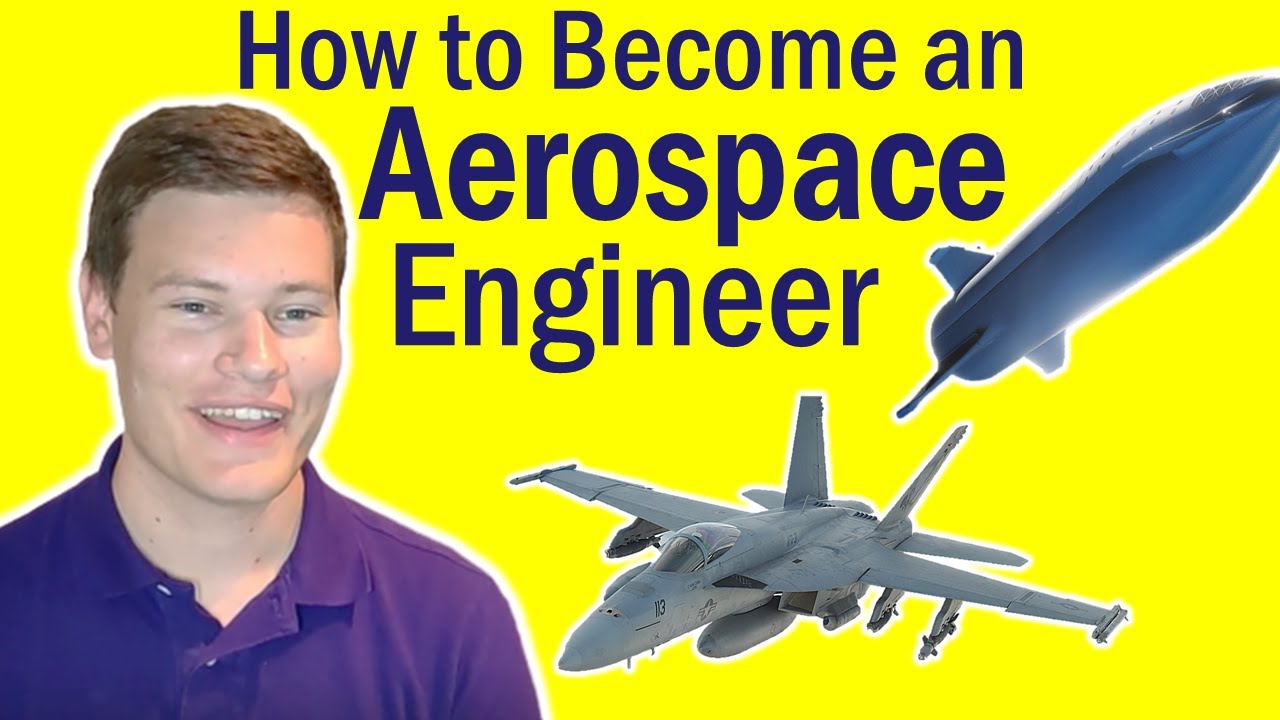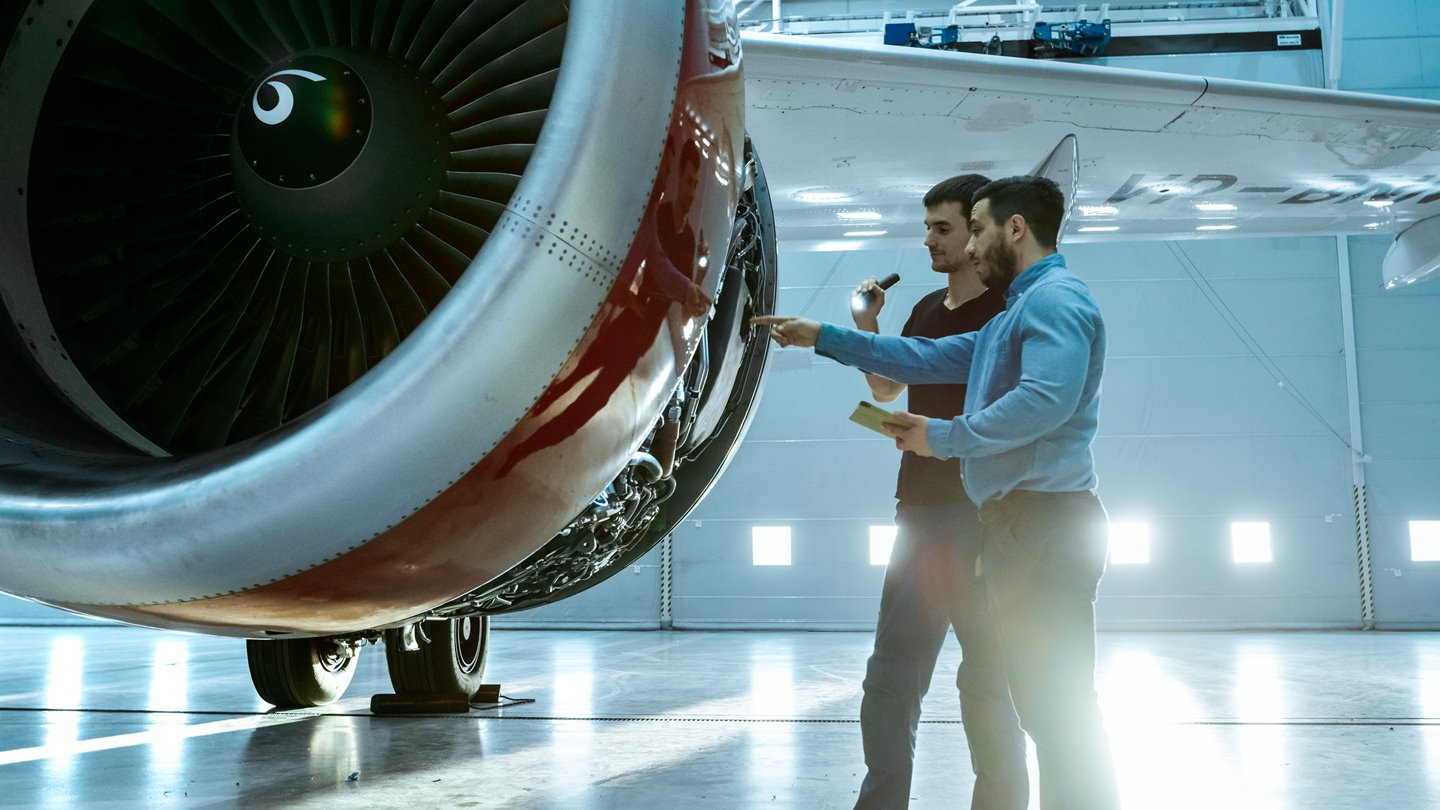Are you fascinated by the marvels of flight and the mysteries of outer space? Do you dream of pushing the boundaries of technology and exploring new frontiers? If so, is aerospace a good career path?
The aerospace industry offers a world of opportunities for individuals who are passionate about innovation, exploration, and making a meaningful impact. In this article, we will explore the reasons why aerospace is a good careerpath, highlighting the benefits and advantages it offers to aspiring professionals.
Is Aerospace A Good Career?
Aerospace is widely regarded as a promising and rewarding career path. With its constant drive for technological advancements, aerospace offers exciting opportunities for those passionate about innovation and exploration. The industry's future is optimistic, driven by increasing global connectivity, the demand for space exploration, and the need for sustainable aviation solutions. As the world becomes more interconnected, the demand for air travel continues to rise, ensuring a steady demand for aerospace professionals.
Additionally, the growing interest in space exploration and satellite technology opens up new avenues for careers in aerospace. Advancements in materials science, propulsion systems, and autonomous technologies further contribute to the industry's potential. Moreover, governments and private companies worldwide continue to invest heavily in aerospace research and development, reinforcing its significance and indicating a promising future.
Aerospace has a promising future with continuous advancements in technology and increasing global demand for air travel, satellite communication, and space exploration. The industry is constantly evolving, and new opportunities are emerging, including the development of sustainable aviation solutions, space tourism, and exploration of Mars and beyond. Aerospace will continue to play a crucial role in shaping the future of transportation and expanding our understanding of the universe.
What Is The Highest Paying Aerospace Job?

Aerospace Engineer Salary (Aerospace Engineering Job Overview)
The aerospace industry offers a wide range of career opportunities, some of which are known for their high earning potential. Here are 15 jobs in the aerospace field that are among the highest paying:
- Aerospace Engineer- Aerospace engineers are involved in the design, development, and testing of aircraft, spacecraft, and related systems. Their expertise is crucial in ensuring safety and efficiency. Experienced aerospace engineers can earn competitive salaries.
- Astronaut- Astronauts are highly trained professionals who travel to space to conduct research, perform experiments, and carry out missions. Astronauts receive extensive training and are often employed by government space agencies. Their salaries are typically among the highest in the aerospace field.
- Aerospace Project Manager- Project managers oversee the planning, execution, and completion of aerospace projects. They coordinate teams, manage budgets, and ensure that projects are delivered on time and within specifications. Their salaries can be substantial, reflecting the responsibility and leadershiprequired for the role.
- Avionics Engineer- Avionics engineers specialize in the design and development of electronic systems used in aircraft, such as navigation systems, communication systems, and flight control systems. Their expertise is critical for the safe and efficient operation of aircraft.
- Aircraft Manufacturing Engineer- Aircraft manufacturing engineers are involved in the production process of aircraft. They work on designing efficient manufacturing systems, optimizing production processes, and ensuring quality control. Their salaries can be lucrative, especially in senior positions.
- Aerospace Systems Engineer - Aerospace systems engineers focus on the integration and optimization of various subsystems in aerospace vehicles. They ensure that all systems work harmoniously and meet performance and safety requirements.
- Aerospace Sales Manager - Sales managers in the aerospace industry are responsible for leading sales teams, developing businessstrategies, and building relationships with clients. With a combination of technical knowledge and sales expertise, they can earn substantial salaries.
- Spacecraft Systems Engineer- Spacecraft systems engineers work on the design, development, and testing of spacecraft and their subsystems. They ensure that the spacecraft meet performance and safety requirements for missions in outer space.
- Aerospace Defense Contractor - Defense contractors in the aerospace industry work on developing and supplying aerospace systems and technologies for military purposes. Their work often involves advanced research and development, leading to high-paying positions.
- Aerospace Consultant - Aerospace consultants provide specialized expertise and guidance to aerospace companies, government agencies, and research institutions. Their roles can involve advising on technical matters, strategy development, and project management, and their compensation can be lucrative.
- Satellite Systems Engineer- Satellite systems engineers design, develop, and maintain satellite systems for communication, weather forecasting, navigation, and scientific research. Their work is crucial for various industries and can offer high-paying positions.
- Flight Test Engineer- Flight test engineers are responsible for planning and conducting tests on aircraft to evaluate performance, safety, and compliance with regulations. Their expertise and involvement in flight testing make them valuable assets in the aerospace industry.
- Aerospace Propulsion Engineer- Propulsion engineers focus on the design and development of engines and propulsion systems for aircraft and spacecraft. Their work is vital for achieving efficient and powerful propulsion, making them highly sought-after and well-compensated professionals.
- Aerospace Materials Engineer- Materials engineers in aerospace specialize in the selection and development of materials used in aircraft and spacecraft construction. They work on improving performance, durability, and safety, often working with advanced materials and composites.
- Aerospace Data Scientist- Data scientists in aerospace analyze and interpret large sets of data to derive insights, optimize operations, and enhance safety. Their expertise in data analytics and machine learning is in high demand, leading to attractive compensation packages.
Why Choose A Career In Aerospace?

Aerospace Engineering is the BEST Career Path: HERE IS WHY!
Choosing a career in aerospace offers numerous advantages and exciting opportunities. Here are some compelling reasons to consider a career in this field:
- Technological Advancements- Aerospace is at the forefront of technological advancements. Working in this industry allows you to be part of groundbreaking innovations in aviation, space exploration, and defense systems. You can contribute to the development of cutting-edge technologies that shape the future.
- Exploration and Discovery- Aerospace provides opportunities for exploration and discovery. Whether it's designing spacecraft to explore distant planets or studying the Earth's atmosphere, working in aerospace enables you to be part of groundbreaking missions and contribute to expanding our knowledge of the universe.
- Diverse Specializations- The aerospace industry encompasses a wide range of specializations. Whether you're interested in aerodynamics, propulsion, avionics, materials science, space missions, or satellite technology, there is a niche for you in aerospace. This diversity allows for continuous learning and growth.
- Global Opportunities - Aerospace is a global industry with opportunities worldwide. Major aerospace companies and research organizations are located in different countries, offering the chance to work on international projects and collaborate with experts from diverse cultural backgrounds. This global exposure enhances your professional growth and cultural understanding.
- Job Security and Stability- The aerospace industry is known for its stability and job security. The demand for air travel, satellite communication, and space exploration continues to grow, ensuring a steady stream of job opportunities. Governments and private companies invest significantly in aerospace research and development, further bolstering the industry's stability.
- Impact and Contribution- Working in aerospace allows you to make a significant impact on society. Aerospace professionals contribute to advancements in transportation, communication, weather forecasting, national security, and scientific discovery. Your work can have a positive and lasting impact on the world.
- Competitive Compensation- Aerospace offers competitive compensation packages. Due to the specialized nature of the work and the high level of expertise required, aerospace engineers and scientists are often rewarded with attractive salaries and benefits. Career progression and opportunities for advancement can also lead to further financial rewards.
- Collaboration and Teamwork- Aerospace projects often involve multidisciplinary teams, fostering collaboration and teamwork. You have the opportunity to work with experts from various fields, such as engineering, physics, mathematics, and computer science. Collaborative environments encourage knowledge-sharing and enable you to tackle complex challenges collectively.
- Innovation and Creativity- Aerospace encourages innovation and creativity. As an aerospace professional, you'll be challenged to think outside the box, find novel solutions, and push the boundaries of what is possible. You'll have the freedom to explore new ideas and contribute to the evolution of the industry.
- Personal Fulfillment- For many individuals, a career in aerospace provides personal fulfillment. The excitement of working on groundbreaking projects, the sense of achievement from solving complex problems, and the opportunity to contribute to humanity's understanding of the universe can bring a profound sense of satisfaction and pride.
What Qualifications And Skills Do You Need For Aerospace Engineering?

How to Become an Aerospace Engineer | Aerospace Engineer Explains
To pursue a career in aerospace engineering, certain qualifications and skills are typically required. Here are the essential qualifications and skills for aerospace engineering:
- Education- A bachelor's degree in aerospace engineering or a related field is typically required. Some individuals may also pursue a degree in mechanical engineering or another engineering discipline with a focus on aerospace. Advanced degrees, such as a master's or Ph.D., can provide additional specialization and research opportunities.
- Strong Background in Mathematics and Science- Aerospace engineering relies heavily on mathematics and science principles. A solid foundation in subjects such as calculus, physics, and chemistry is crucial. Knowledge of advanced mathematics, including differential equations and linear algebra, is also beneficial.
- Engineering Skills- Proficiency in engineering principles and practices is essential. This includes understanding mechanics, materials science, fluid dynamics, aerodynamics, and structural analysis. Familiarity with computer-aided design (CAD) software and engineering tools is also important.
- Problem-Solving Abilities- Aerospace engineers must be adept at solving complex problems. They need strong analytical and critical thinking skills to analyze situations, identify issues, and devise effective solutions. The ability to think creatively and consider multiple perspectives is valuable.
- Attention to Detail- Precision and attention to detail are crucial in aerospace engineering. Engineers must ensure that designs, calculations, and measurements are accurate and meet specifications. The ability to spot and rectify errors or inconsistencies is important for maintaining safety and performance standards.
- Communication and Collaboration- Effective communication skills are necessary for aerospace engineers. They need to convey technical information, collaborate with team members, and present ideas and findings clearly. The ability to work well in interdisciplinary teams is essential for successful project completion.
- Computer Skills - Aerospace engineers utilize computer software and simulation tools extensively. Proficiency in programming languages, such as MATLAB or Python, and experience with software packages used in aerospace engineering, like ANSYS or CATIA, is advantageous.
- Knowledge of Regulations and Safety Standards- Aerospace engineers must have a good understanding of industry regulations and safety standards. They need to ensure that their designs comply with relevant guidelines and adhere to established safety protocols.
- Continuous Learning and Adaptability- The aerospace industry is constantly evolving, with new technologies and advancements emerging regularly. Aerospace engineers must have a passion for continuous learning, staying updated on the latest developments, and adapting to changing requirements and technologies.
- Practical Experience - Gaining practical experience through internships, co-op programs, or research opportunities is highly beneficial. Hands-on experience allows aerospace engineers to apply theoretical knowledge, develop practical skills, and gain industry exposure.
What Do People Working In Aerospace Do?

What is aerospace engineering & what do aerospace engineers do.?
People working in aerospace are involved in various roles and responsibilities across the industry. Here are some common areas and tasks that professionals in aerospace undertake:
- Design and Development- Aerospace engineers play a crucial role in designing and developing aircraft, spacecraft, and related systems. They utilize their knowledge of aerodynamics, propulsion, materials science, and structural analysis to create efficient and safe vehicles. They work on aspects such as aircraft structures, engines, avionics systems, and control systems.
- Testing and Evaluation- Aerospace professionals conduct testing and evaluation of aircraft and spacecraft to ensure their performance, safety, and compliance with regulations. This includes flight testing, ground testing, and simulations to analyze various parameters, assess structural integrity, and verify system functionality.
- Systems Integration- Aerospace engineers work on integrating different subsystems and components to ensure seamless operations. They focus on the integration of avionics systems, communication systems, propulsion systems, and other subsystems to achieve efficient and reliable functioning of the aerospace vehicle.
- Research and Development- Professionals in aerospace engage in research and development activities to explore new technologies, improve existing systems, and push the boundaries of innovation. They investigate advanced materials, develop new propulsion methods, and enhance aerospace vehicle performance, efficiency, and safety.
- Manufacturing and Production- Aerospace manufacturing involves the production, assembly, and quality control of aerospace components, structures, and systems. Professionals in this field oversee the manufacturing processes, ensure adherence to specifications, and maintain high-quality standards throughout the production cycle.
- Mission Planning and Operations- In the field of space exploration, aerospace professionals are involved in mission planning and operations. They design and execute missions, coordinate launch operations, monitor spacecraft performance, and analyze mission data.
- Satellite Technology- Professionals working with satellite technology focus on the design, development, and operation of satellites for various purposes, including communication, weather monitoring, navigation, and scientific research. They work on satellite subsystems, ground control systems, and satellite deployment and operations.
- Aerospace Consulting- Aerospace consultants provide specialized expertise and advisory services to aerospace companies, government agencies, and research institutions. They offer guidance on technical matters, strategic planning, project management, and regulatory compliance.
- Aerospace Sales and Marketing- Sales and marketing professionals in aerospace work on promoting aerospace products and services, identifying potential customers, and building relationships with clients. They communicate the value and benefits of aerospace technology and systems to customers and stakeholders.
- Aerospace Education and Training - Some professionals in aerospace contribute to education and training by working as instructors or professors in universities, colleges, or training centers. They impart knowledge and skills to aspiring aerospace engineers, technicians, and professionals.
Pros And Cons Of Aerospace Career
A career in aerospace comes with its own set of advantages and challenges. Here are some pros and cons to consider when contemplating a career in this field:
Pros Of Aerospace Career
- Technological Advancements - Aerospace is at the forefront of technological advancements. Working in this industry allows you to be part of groundbreaking innovations, pushing the boundaries of what is possible in aviation, space exploration, and defense systems.
- Exciting and Meaningful Work- Aerospace offers the opportunity to work on projects that have a significant impact on society. Whether it's developing sustainable aviation solutions, designing spacecraft for exploration, or advancing satellite technology, the work in aerospace is often thrilling and fulfilling.
- Job Stability- The aerospace industry is known for its stability and job security. The demand for air travel, satellite communication, and space exploration continues to grow, ensuring a steady stream of job opportunities in this field.
- Competitive Compensation- Aerospace professionals often enjoy competitive salaries and benefits due to the specialized nature of their work. The industry recognizes the expertise and skills required for aerospace engineering, making it a financially rewarding career path.
- Global Opportunities- Aerospace is a global industry, offering opportunities to work on international projects and collaborate with experts from around the world. This global exposure enhances your professional growth, cultural understanding, and opens doors to exciting possibilities.
Cons Of Aerospace Career
- High Level of Competition- The aerospace industry is highly competitive, attracting some of the best and brightest minds. Securing employment or advancement opportunities can be challenging due to the intense competition and the need for specialized skills and experience.
- Complex and Demanding Work- Aerospace engineering involves dealing with complex systems, intricate designs, and stringent safety regulations. The work requires attention to detail, precision, and a high level of technical expertise. Meeting project deadlines and ensuring safety standards can be demanding.
- Strict Regulatory Environment- Aerospace is subject to strict regulations and compliance requirements, particularly in areas such as aviation and space exploration. Adhering to these regulations and navigating the bureaucratic processes can be time-consuming and complex.
- Risk and Safety Concerns- Working in aerospace involves addressing risk and safety concerns associated with aircraft and spacecraft. Engineers and professionals must be vigilant in ensuring the safety and reliability of aerospace vehicles, which can add pressure and responsibility to their roles.
- Long Development Cycles- Aerospace projects often have long development cycles, which means that seeing the results of your work may take considerable time. Patience and perseverance are essential in dealing with the lengthy design, testing, and production processes.
People Also Ask
What Education Do You Need For A Career In Aerospace?
A career in aerospace typically requires a bachelor's degree in aerospace engineering, mechanical engineering, or a related field. Advanced degrees, such as a master's or Ph.D., can also be beneficial for specialized roles or research positions.
How Much Does A Career In Aerospace Pay?
Salaries in the aerospace industry can vary depending on factors such as job role, experience, location, and level of education. On average, aerospace engineers earn a competitive salary, with entry-level positions starting around $70,000 to $80,000 per year and experienced professionals earning upwards of $100,000 or more annually.
Is A Career In Aerospace Stressful?
Like any challenging and high-stakes field, a career in aerospace can come with its share of stress. Meeting project deadlines, ensuring safety standards, and working on complex engineering problems can be demanding. However, the sense of accomplishment and the opportunity to work on cutting-edge projects often outweigh the stress for many professionals in the industry.
Are There Opportunities For Career Advancement In The Aerospace Industry?
The aerospace industry offers ample opportunities for career advancement. With experience and continuous professional development, aerospace professionals can progress to higher-level positions, take on leadership roles, work on more complex projects, and have the chance to contribute to significant advancements in the field.
Conclusion
A career in aerospace holds immense promise and allure for those with a passion for innovation and exploration. The industry offers a wide range of specializations, fostering continuous learning and growth. If you are ready to embark on an exciting journey, where you can shape the future and reach for the stars, consider aerospace as a promising and fulfilling career choice.
